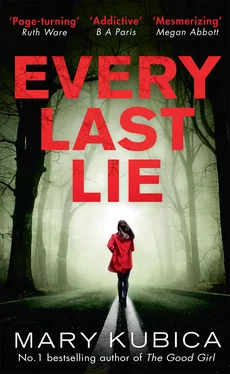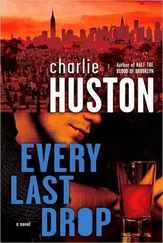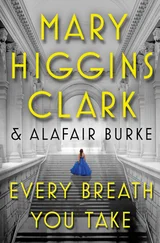“Everything’s fine,” the woman assures me. “I’m calling from billing. Just a question on an unpaid bill,” she says, going on to tell me how my father’s check for their last visit with Dr. Barros bounced. “We’ve been trying to contact him before sending the bill to collections. That can be such a headache,” she says. “We left messages at home, but he hasn’t returned our calls.”
It’s so unlike my father, and yet I’m struck with an instant pang of guilt, knowing my father has brushed aside his own obligations to care for mine, keeping me company, making my meals, doing my laundry, watching my children, when he should be caring for my mother and himself.
Money has never been a problem for my father. Between my father’s pension, the rental property and more, he should be making a sufficient income. It will be a few years still until he can dip into social security, but he has been planning for retirement since he was twenty-five. He’s prepared for this.
“It must be a mix-up with the bank,” I tell this woman. “How much was the bill for?” I ask, and she tells me, confirming an address for payment, which I scribble onto a sheet of scratch paper while parked at a stoplight, waiting for the light to turn green.
“I’ll take care of it,” I assure her, begging, “Please, don’t send the bill to collections. I’ll speak to my father,” though I won’t. What I’ll do instead is send a check to the office of Dr. Barros because, after everything my father has done for me, this is the least that I can do. The last thing I want is to make him feel stupid for the oversight, or to make him embarrassed.
Dementia isn’t contagious, I remind myself as I have so many times before, though the first indicators of my mother’s dementia were slight. Could these be the warning signs? Bounced checks. Not returning phone calls.
No, I tell myself. My father is simply preoccupied with my life.
I end the call and instantly the phone rings again. “Yes?” I say this time, fully expecting to hear the same voice on the other end of the line. The receptionist from Dr. Barros’s office calling already to tell me that the check has been found. But it’s not the receptionist this time.
“Did I catch you at a bad time?” The voice is apologetic, and at once I say, “No,” feeling myself soften and relax at the sound of Nick’s best friend, Connor, on the other end of the line, the anguish in his voice as palpable as that in mine. Connor is the only one in the world who loved Nick as much as I did, though in a different way, of course.
“There aren’t any good times anymore,” I confess, and we sit in silence on the phone until Connor breaks the stillness by saying to me, “We don’t have to do this alone, you know?” and I remember then what they say about misery loving company.
* * *
When I get home that afternoon, Maisie is crying. My father has his feeble hands on her shoulders trying to console her, but Maisie won’t be consoled. She turns her back to him, taking two tiny steps away from where he sits. The tears roll unfettered from her eyes and down her freckled skin as she and my father linger in her bedroom, an odd-shaped room with sloped ceilings, a bedroom that is all pink. Hot pink, carnation pink, pink pink. On her bed lies that poor, pathetic bear with its ear all but chewed off. The bed is as Maisie left it last night before she plodded into my room, blaming insomnia for the reason she couldn’t stay in her own bed. Her walls flaunt pricey, custom-made art: a princess in a pink tutu, a giraffe with a rose tucked behind its ear. Her bed is thin and narrow, a spindly Jenny Lind bed, which sags under even the meager weight of my father; it’s draped by a pretty pink tulle canopy, which hides the guilt of his earnest eyes.
He has told her about Nick. At this I fill with anger. He never liked Nick; Nick was never good enough for his little girl, and then years later when she finally arrived, for Maisie. Nick was unemployed when we met, a student hard at work on a dental degree. He was eager and goal-oriented and a hard worker to boot; that’s the way I saw it. But my father only envisioned the ever-growing debt of a doctoral degree, and the complete lack of income while I supported Nick as he achieved his dreams. When Nick decided to go into private practice, and we dipped into money I’d earned doing event and portraiture work—spending my weekends with a camera at the weddings of people I didn’t like or know—to rent a space and purchase dental equipment, my father could hardly contain his disappointment and dismay. That man, he told me of Nick, over four years ago as we cut the ribbon of Nick’s new space, one that would flourish over the next few years, expanding to include a partner and more clients than I could count, will only bring you down, he’d said. And now, standing before him, feeling like the rug has been pulled out from under my feet, I wonder if he was right.
“Daddy,” I say, stepping quickly into the room, towing Felix by the handle of his infant seat, a contraption that must weigh thirty pounds. “What’s going on in here?” I ask, setting the weight of Felix and the baby seat gently to the floor.
But before my father can reply, Maisie cries out with doleful eyes, staring at me in despair, “He’s dead. He’s dead.” And I feel my heart begin to ache, the tears spring to my eyes. My father, too, has eyes that are red-rimmed, though I want to point an accusatory finger at him and say that this is his fault; he is to blame. He had no business telling Maisie about Nick.
Maisie scurries to my side and wraps her arms around my lower limbs quickly and without warning, so that I lose my balance and nearly fall. “It’s okay,” I say mechanically as I stroke her hair while glaring at my father inches above her head. “Everything will be okay.” My words, my motions, are robotic, perfunctory, lifeless.
This isn’t the way Nick would do it. He would drop down to Maisie’s level and gather her in his tender arms; he would say something, anything, other than these mendacities. It is not okay. Everything will not be okay. I’m lying to Maisie; I’m a liar.
“Clara,” my father bleats, an attempt at an apology, but I hold my hand up to him—I don’t want to hear it. This news, this information wasn’t his to share. It was mine.
It’s my father’s fault that Maisie is clinging to my legs and crying.
“Look, Mommy,” Maisie says then, drawing slowly away from my legs. She slips a sticky little hand inside my shaking one and draws me to her dresser, a long white bureau with a mirror. There are things on top of the dresser, many things that Maisie points to at random: a pair of princess underpants, a doll, the stethoscope from a toy doctor kit, a used tissue. There are photographs slipped into the frame of the mirror: Maisie and Nick; Maisie and me; Maisie forced to stand beside my mother, two and a half feet out of reach because she is scared of my mother, as I would be, too, if I were four; Maisie and her boppy, my father, who watches on now not saying a thing.
I step forward and follow the route of Maisie’s finger with my eyes. She points to a jar, one of my old mason jars with holes punctured in the top of the metal lid. I move closer, not knowing why the jar is here or how it’s come to be here.
Inside the jar is a twig, shorn from a tree. It’s a thin twig, a copper brown. There are leaves inside the jar—green leaves, a scrunched-up handful of leaves as if Maisie grabbed on to a tree and tugged—and sheaths of grass covering the bottom of the jar, a deathbed upon which lies a lightning bug spread out on its back, all six inert legs up in the air, its tail no longer sparkling. It doesn’t move.
“We forgot,” Maisie voices to me pathetically, the tears streaming down her eyes. “He’s dead.”
Читать дальше












